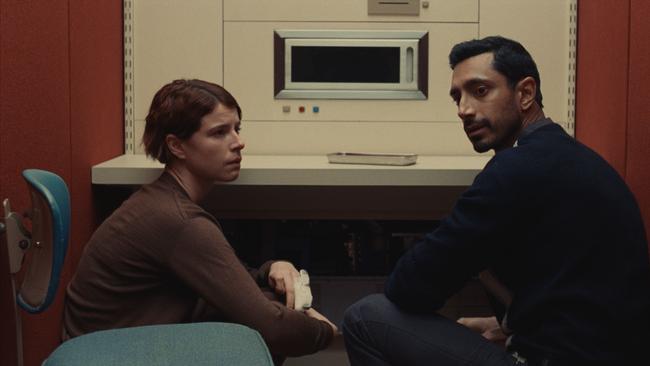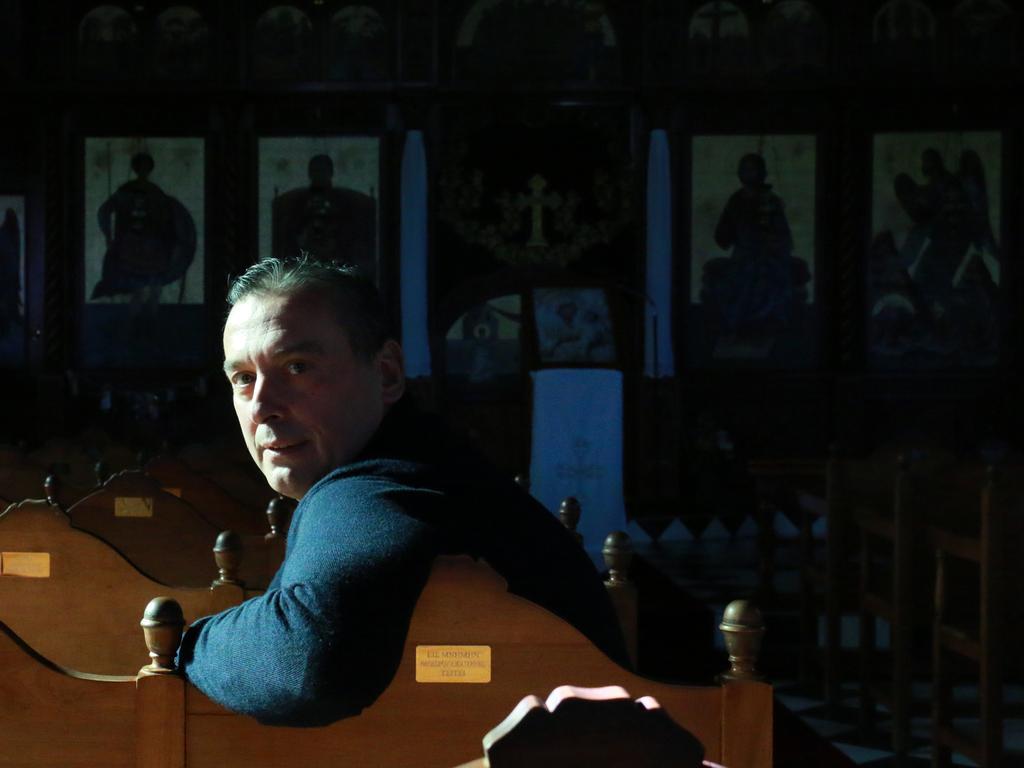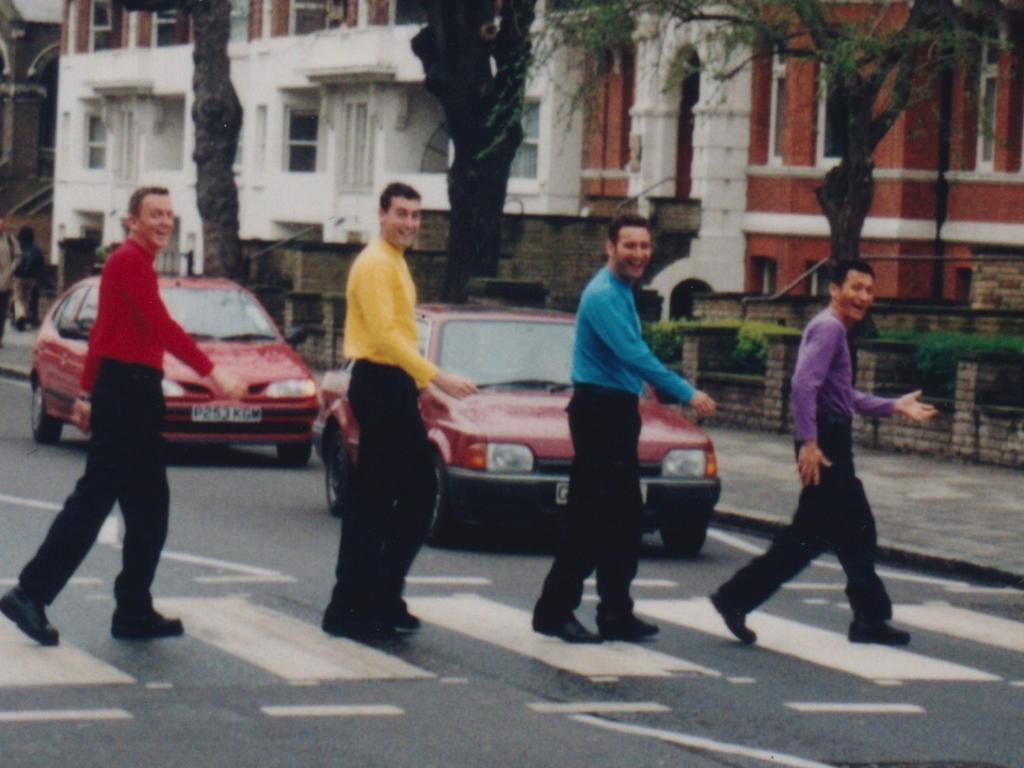Saltburn film review: dissecting class, privilege, wealth, family, love and sex
Barry Keoghan is outstanding as a Oxford University scholarship boy who spends the holidays at a rich friend’s Brideshead-like estate that feels like one big exotic rule-breaking party.

Saltburn (MA15+)
In cinemas from November 16
★★★★
What happens when Brideshead Revisited meets the talented Tom Ripley? Saltburn is what happens, the second film from English actress-writer-director Emerald Fennell following her Academy Award-winning 2020 directorial debut Promising Young Woman.
That debut had unconventional moments, including sexual ones, but this film takes them to a different level thanks in no small part to the remarkable lead performance of Irish actor Barry Keoghan.
There’s an erotic fixation on someone’s used bathwater, for example. That may sound innocent enough but trust me it isn’t. There’s menstrual blood and the thought of being a vampire.
That may sound off-putting, and it is. But this 127-minute film, which dissects class, privilege, wealth, family, love and sex, is immersive from the opening frames. It’s a satire that touches on truths.
Keoghan was outstanding in Christopher Nolan’s Dunkirk and Yorgos Lanthimos’s The Killing of a Sacred Deer, each released in 2017, and received an Oscar nomination for Martin McDonagh’s The Banshees of Inisherin (2022).
He should receive another Oscar nod for Saltburn. It will be a tough year, with Cillian Murphy certain to be in the running for Nolan’s Oppenheimer, but whether he wins or loses, 31-year-old Keoghan’s Oscar is only a matter of time.
Here he is Oliver Quick, a “scholarship boy” at Oxford University (the director’s alma mater) “who buys his clothes from Oxfam”. That may or may not be true, as we will learn. What is true is that he is acid smart and not afraid to show it.
The setting is 2006, so it’s a modern version of Evelyn Waugh’s 1945 novel Brideshead Revisited, which was made into a glorious 1981 television series starring Jeremy Irons and Anthony Andrews.
Oliver is Irons’s Charles Ryder, an intelligent, middle-class young man out of place amid the aristocratic lot. Andrew’s Sebastian Flyte is Felix Catton (Australian actor Jacob Elordi, who will soon be seen as Elvis Presley in Sofia Coppola’s new film, Priscilla).
The comparison with Brideshead is humorously deliberate.
“It sounds like an Evelyn Waugh novel,” Oliver says when Felix tells him about his life and times. Felix replies, off-handedly, “Evelyn Waugh was obsessed with my family.” Felix, who is physically beautiful, takes a shine to Oliver and invites him to the family spread, Saltburn.
Brisbane-born Elordi is convincing as this English toff, a grown boy who still refuses to share his toys.
As he walks Oliver through the rooms of the Brideshead-like estate he points out the “f--king hideous Rubens” on the walls, gestures to “daddy’s old teddy” and notes that Henry VIII’s semen stains are still on the bedroom linen.
Whether he’s joking or not about the last one, it’s a line that becomes important as Oliver decides to stay on at Saltburn. It’s at this point that the plot shifts towards the psychological drama of Patricia Highsmith’s 1955 novel The Talented Mr Ripley, filmed by Anthony Minghella in 1999.
The question is, who is the Ripley character, Felix or Oliver? As the stiff upper lip butler (Paul Rhys) tells Oliver: “A lot of people get lost in Saltburn.”
Felix’s family is deeply rich and profoundly odd. All the supporting actors deliver standout performances.
Rosamund Pike is Lady Catton, Felix’s ex-model, borderline alcoholic mother, who speaks as though every word was written by Oscar Wilde. She cannot abide ugliness, she tells the short, bespectacled Oliver on their first meeting. “I was a lesbian for a while but it was all too wet for me.”
Sir James Catton, Felix’s eccentric father, is Richard E. Grant. Wait for the scene where Oliver orders eggs for breakfast and timidly notes their runniness. Felix’s chain-smoking bulimic sister, Venetia, is Alison Oliver and Lady Catton’s depressed friend, Pamela, is Carey Mulligan, the star of Promising Young Woman.
It is Keoghan as Oliver, though, who commands every scene he is in as he moves from maybe innocent to maybe not-so-innocent.
He becomes intimately close to Felix and to Venetia (“I like you even more than last year’s one,” she tells him) and to other family members and friends.
Some of the things that happen to him, and some of the things he does, do not happen in Brideshead, though that doesn’t mean they may not have been considered.
Fennell won an original screenplay Oscar for Promising Young Woman, which was also nominated for best picture and best director. With a debut like that there’s always the fear of second film syndrome.
That does not happen. This 127-minute film is a decisive step forward in Fennell’s short but remarkable career behind the camera.
As a viewer, it’s like being at one of the exotic, rule-breaking parties that happen in Brideshead and in this modern reinvention.
The extended final scene, which involves one of the main characters – it would be unfair to say who – dancing naked through the castle is astonishing. You don’t have to join in, but you may feel a slight thrill, guilty or otherwise, about being there to watch.
Fingernails (MA15+)
AppleTV+
★★★
Following is the odd combination that came to mind as I watched the absurdist romantic drama Fingernails, the English language debut of Greek film director Christos Nikou.
First, the Gestapo pulling out Peter O’Toole’s fingernails in the failed-to-kill-Hitler thriller Rouge Male (1976), based on the 1939 novel by Geoffrey Household. Second, the Oscar-nominated 1944 song I Fall in Love Too Easily.
The connection is that in this movie, which I think is set in an alternative past (landline phones, 70s and 80s songs), human fingernails are the ultimate test of love.
Any couple who wants to check if they are in love can make an appointment at the Love Institute and have one of their fingernails pulled out with pliers. It looks as painful as it sounds.
The nails are put into a machine and the result pops up on its screen. There are just three possibilities: 100 per cent, 50 per cent (only one of them is in love, though the machine can not determine which one) and 0 per cent.
Anna (Oscar nominee Jessie Buckley) and Ryan (Jeremy Allen White, star of the must-watch TV series The Bear) did the test three years ago, scored 100 per cent and received their Love Certificate.
“More than anything it felt like a relief, like a weight had been lifted,’’ Ryan says. It’s a telling observation.

Today their relationship is stuck and Anna thinks they should retake the test. This feeling intensifies when she lands a job at the institute and falls for her senior co-worker Amir (Oscar nominee Riz Ahmed), who is developing experiments to judge people’s commitment to each other, such as setting a cinema on fire during a Hugh Grant movie festival.
Amir has a girlfriend, or so he says. Almost everyone in this disconnected society tells lies, especially Anna. All the relationships seem awkward, stilted and loveless.
When Anna asks the institute boss, Duncan (Luke Wilson), whether it’s possible to be in love with more than one person, he rules it out.
When you’re six months pregnant, he tells her, you can’t get pregnant again. When another staff member asks him how people without arms can measure love, he is stumped.
This Kafkaesque set-up is intriguing. Imagine a world where brief torture is the only way to know if you are in love and loved back, and where that decision is made by a machine that looks like an early microwave oven.
And doesn’t love change over time? Here it depends on whether the fingernail-zapping love machine says yes, only one of you, or no.
The restrained performances reflect the emotional numbness of this life. The songs are well used – when Anna watches Amir dancing to Frankie Valli’s The Night no machine measurement is needed – and the humour is darkly dry.
It’s a good start to this 113-minute film but it fails to develop some of the possibilities it raises, such as the backstory – there is mention of a love “crisis” – and the couples who rebel against the system.
As I watched I thought of Alfonso Cuaron’s brilliant 2006 dystopian drama The Children of Men. It’s watching Amir dance that puts Anna on the path that recalls that song about falling in love too easily. I suppose you can have a total eclipse of the heart 10 times before you need to take a much-needed pause.
Fingernails, Dr Google tells me, take up to six months to regrow.






To join the conversation, please log in. Don't have an account? Register
Join the conversation, you are commenting as Logout